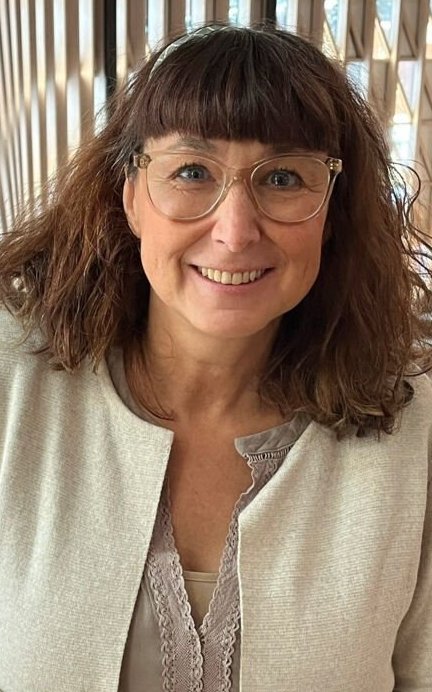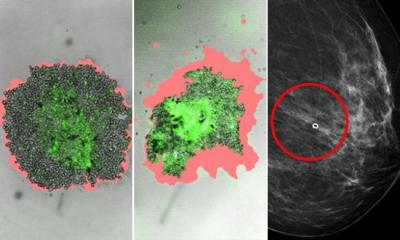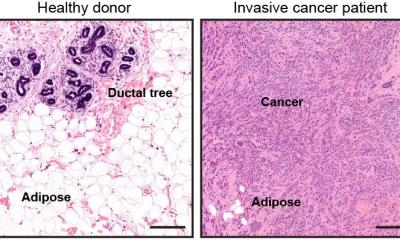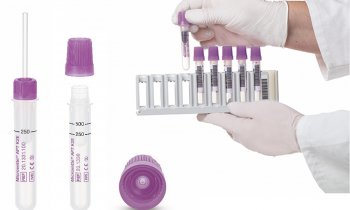Image source: Adobe Stock/gaetan
News • Friend and foe in one
Breast cancer: The paradoxical role of white blood cells
A new study from Karolinska Institutet shows that tumor-associated macrophages, which are white blood cells that are found in breast tumors, can both help and hinder the spread of cancer cells to other organs.
The researchers found that macrophages that produce a substance called VEGF-C reduce the spread of breast cancer to the lungs but increase the spread to the lymph nodes. This may have implications for the prognosis and treatment of breast cancer. The team published their findings in Cell Reports.
Breast cancer is one of the most common cancers in the world, and most cases are hormone-dependent and can be treated with hormone therapy. But even several years after diagnosis, breast cancer can spread to other parts of the body, such as lungs, brain and bone marrow. It is not entirely clear what causes this long-term risk, but a possible factor is the white blood cells called tumor-associated macrophages (TAMs). TAMs are abundant in breast tumors, playing a dual role in facilitating and impeding the spread of cancer cells. Specifically, perivascular TAMs, a subset wrapped around vessels, regulate blood vessel function and guide or block cancer cell entry into the vasculature, impacting their potential spreading to other organs.

Image source: Karolinska Institutet; photo: Cecilia Odlind
Associate Professor Charlotte Rolny at the Department of Oncology-Pathology and colleagues have studied a special type of TAMs that produce a substance called VEGF-C. This substance is known to affect the formation of new lymphatic vessels in tumors, which can facilitate the transport of cancer cells to other organs. However, the researchers discovered that TAMs that express VEGF-C have a dual effect: they reduce the spread of breast cancer to the lungs but increase the spread to the lymph nodes at the same time.
The researchers also examined this relationship in clinical data from patients with breast cancer. They found that the presence of VEGF-C-positive TAMs was linked to a lower severity of the disease. It seems, therefore, that these TAMs are not only helpers of metastasis, but also strategic directors, who steer the cancer cells to less harmful routes.
How do these TAMs do this? The researchers suggest two possible mechanisms. First, VEGF-C-expressing TAMs normalize the tumor’s blood vessels, so that they become more organized and less leaky. Second, these macrophages stimulate lymphangiogenesis, that is, the formation of new lymphatic vessels, which facilitate the spread of cancer cells to the lymph nodes.
In summary, the paradoxical role of VEGF-C-expressing TAMs shows a fine-tuned orchestration within the tumor environment. Rather than merely facilitating metastasis, these macrophages emerge as strategic directors, who influence the destination of cancer cells. Understanding this process offers potential insights for therapeutic interventions, possibly by exploiting the paradox to prevent metastasis or redirect it to less harmful routes.
The research was mainly funded by the Swedish Research Council, the Swedish Cancer Society, and Radiumhemmet’s research funds.
Source: Karolinska Institutet
06.12.2023











